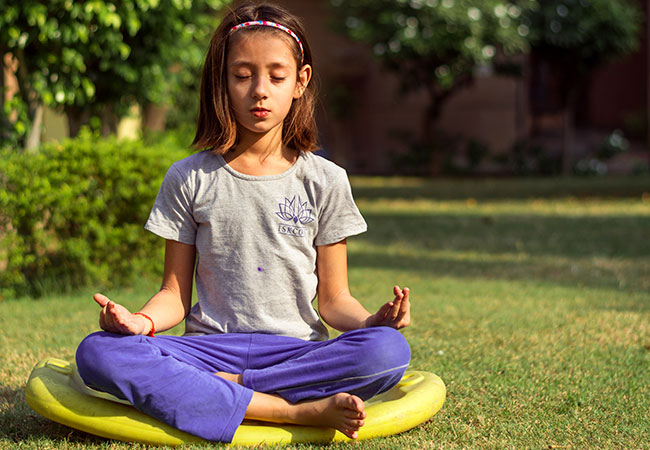Amazing Benefits Of Yoga In Schools
2) Improves Memory And Attention Span ... Yoga helps to improve the memory function in both adults and children, a direct benefit of which would be a better

Students in high school and college may have youth on their side, but that doesn't mean they're immune to life's challenges. So, let's discuss why yoga should be taught in classrooms.
Tension in the body and mind is inevitable when one spends several hours sitting at a desk, then returns home to pore over books to complete daily homework assignments, studies to pass many tests, and engages in numerous extracurricular activities.
Children also suffer from the effects of issues like social isolation, parental conflict, peer pressure, and bullying.
Yoga, an elixir that works on practically every modern dilemma including obesity, melancholy, diabetes, and panic attacks, isn't just a panacea for adults; it can also help kids lead healthier lives as they become older. Some advantages of introducing yoga into the classroom for kids are as follows:
1) Reduces Stress And Anxiety
There are clear benefits to yoga in every area of life due to its capacity to help practitioners stop worrying and focus on the present moment. It's no secret that students live under a lot of pressure, always looking for ways to better themselves and prove their worth.
They find relief from their anxiety and stress with the help of yoga. People who practise yoga frequently not only report less stress and anxiety, but also do better in school as a result.
2) Improves Memory And Attention Span

Children's academic performance can benefit directly from yoga because of its positive effect on memory function at any age. In addition, it aids in the development of kids' concentration and focus. Children with ADHD (Attention Deficit Hyperactivity Disorder) also benefit from yoga since it helps mitigate the symptoms of the disorder, including inattention, hyperactivity, and impulsivity.
Yoga has been shown to help many youngsters with attention deficit hyperactivity disorder (ADHD) lower their medication dosage. Incredibly, this is just one of yoga's many advantages in the classroom.
3) Helps To Manage Weight
As a result of today's sedentary culture, children are increasingly overweight and have poor eating habits. Yoga is a good way to counteract this way of living.
Children (especially those who dislike sports) can maintain a healthy weight through asana practise. In a healthful approach, this helps combat the growing epidemic of overweight children.
4) Improves Flexibility, Balance And Posture
Poor posture can be a result of excessive screen usage or sitting for lengthy periods of time when studying. A lifetime of slouching can cause serious health issues in adulthood.
Consistent asana practise can help you achieve better posture, greater flexibility, and better balance by re-establishing the body's natural equilibrium. Yoga has incredible advantages, and this is one of them.
5) Teaches Correct Breathing Techniques
The quality of our breathing has a direct impact on our health and vitality. Proper breathing has a beneficial effect on our mobility, posture, and resistance to stress.
Students of yoga can benefit from pranayama and other breathing exercises beginning at a young age to acquire the art of controlled breathing and enhance their health and well-being.
6) Promotes Mindfulness
Learning to live in the here and now is the essence of mindfulness. Mindfulness involves paying attention to the present moment, whether by focusing on your breathing or tuning out all except the farthest sounds.

Mindfulness helps its practitioners calm their racing minds and unwind their tense muscles. Visualisation exercises that are both fun and educational can help kids develop mindfulness. Yoga has incredible advantages, and this is one of them.
7) Encourages Self-Love And Self-Care
Instead than focusing on external beauty, yoga encourages inward health. This is especially important for young children, who are targeted by advertisements promoting unrealistic ideals of beauty, to learn.
8) Helps To Bring Peace Of Mind
College students have enough on their plates without having to juggle a wide variety of extracurricular activities and social commitments. Pranayama and mindfulness training helps pupils deal with stress and organise their lives more skillfully.
The child's general demeanour improves as a result of the release of feel-good hormones that are triggered by the reduction of stress.













